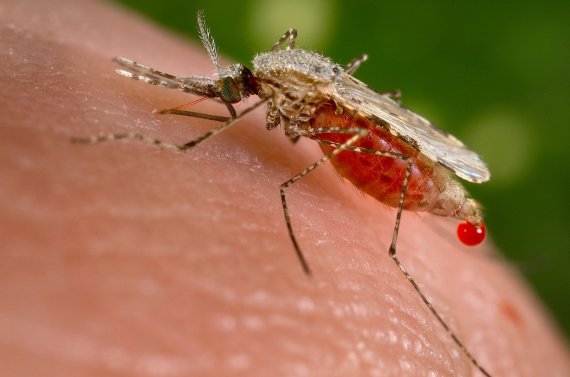The Anopheles mosquito (Credit)
There have been disputes between scientists in recent years as to whether iron supplements increase the risk of contracting malaria.
A few studies suggested that raised blood iron levels pave the way for the Plasmodium parasite which causes malaria. This new trial dismisses all the objections, says Mwangi, who thinks it is high time governments and donors made iron supplements widely available. ‘There was already a policy on this, and iron supplements are relatively cheap.’
In the trial, two groups of around 235 pregnant women in Kenya were monitored: one group were on iron tablets and the other on placebos. The women were monitored for the incidence of iron deficiency as well as the birth weight and iron levels of their babies. The researchers could see in retrospect whether the women had suffered from malaria during the pregnancy from the placenta, where parasites like to settle. Neither the supervisors nor the women knew which group they were in. > This is pretty much the most difficult PhD research you can imagine — Hans Verhoef
It turned out that malaria occurred with the same frequency in the two groups. Giving iron tablets did, however, have a positive effect on the health of the baby. In the ‘iron group’, the babies came into the world on average 143 grams heavier than those in the control group. The mothers who were anaemic before the study began enjoyed the biggest benefits. ‘This really is a big and relevant difference,’ says Hans Verhoef, a researcher at Cell Biology and Immunology, and Mwangi’s supervisor, ‘because birth weight is a predictor of the baby’s chances of survival, especially in the first month after birth.’
Lake Victoria
Worldwide, about 1.6 billion people suffer from anaemia, mainly in developing countries. In children this can slow development and cause death. Since 1959, the WHO’s advice has been that pregnant women should take iron supplements.
Mwangi did his research to the north of Lake Victoria: a large and poor region with only two health centres. In spite of thorough preparations he often found himself having to improvise. On one occasion he helped to bring a child into the world on the backseat of his car after getting stuck in the mud on a dirt road. Par for the course, says Verhoef. ‘This is pretty much the most difficult PhD research you can imagine.’

